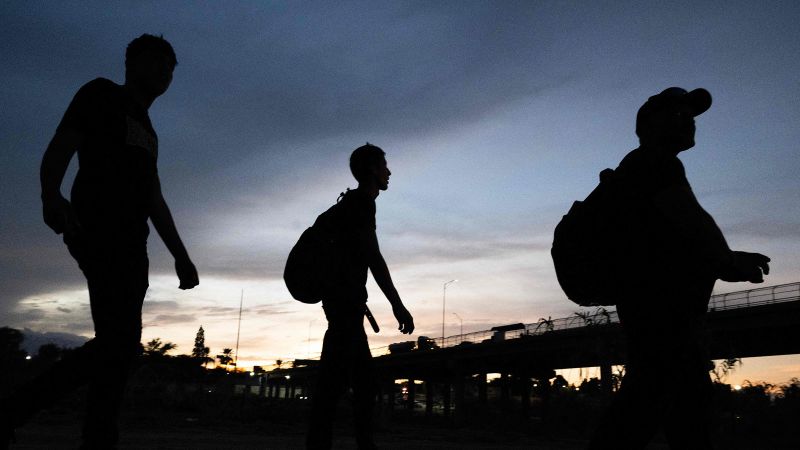The Department of Homeland Security is set to notify hundreds of thousands of migrants that their permission to reside and work in the United States has been revoked, urging them to leave the country. Specifically targeting nationals of Cuba, Haiti, Nicaragua, and Venezuela who entered the U.S. through a parole program initiated during the Biden administration, the notice warns of potential enforcement actions if individuals fail to comply. The termination notice also mandates the return of work permits linked to the program to US Citizenship and Immigration Services.
This move reflects the Trump administration’s broader efforts to compel migrants, regardless of legal status, to leave the country. The Biden administration had introduced the parole program in 2023 to offer a legal pathway for migrants from the mentioned countries, aiming to reduce illegal border crossings. However, the program faced criticism from Republicans, leading to legal challenges that eventually allowed Trump to terminate protections for its beneficiaries.
Homeland Security Assistant Secretary Tricia McLaughlin emphasized the decision as a return to sensible policies and public safety. While the Supreme Court’s emergency decision accelerated deportations for approximately 530,000 program beneficiaries, the underlying legal battle continues in lower courts. The Trump administration defended its move as a significant immigration policy decision, citing its impact on deterring illegal entry and upholding executive branch prerogatives.
The ongoing legal battle underscores the complexities and implications surrounding immigration policies and enforcement actions, highlighting the intersection of legal, political, and humanitarian considerations in the management of migration flows.

